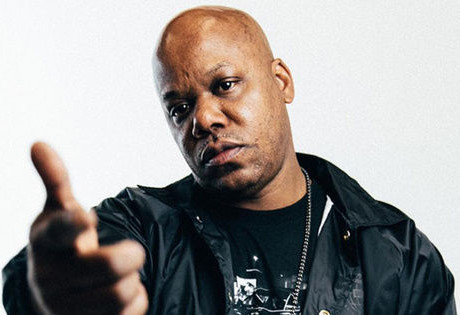Rapper Too Short had his biggest hit thus far with 2006’s “Blow the Whistle.” However, conventional wisdom would suggest that’s damn near impossible. At the time of its release, Short Dog was 40 years old, and, historically, Hip-Hop was always a young man’s game; even Jay-Z stumbled a bit with his Kingdom Come album that same year and said on a song, “30’s the new 20,” insinuating age was more than just a number. Music is also about metrics – sales, spins, and streams (the last of which wasn’t a thing yet), and “Blow the Whistle” didn’t make it onto the Billboard Hot 100 chart. Trends define hits of a particular time as well, and “Blow the Whistle” was not the hyphy movement’s breakthrough song (see “Tell Me When to Go” instead). Yet, almost a decade and a half later, it is one of the era’s most well-respected and beloved songs that will forever hold a spot in Hip-Hop’s consciousness.
Like “Blow the Whistle,” Too Short is an anomaly in the best possible ways. What he lacks in mainstream popularity and exposure gets made up for in influence and longevity. Short pioneered the business savvy of modern Hip-Hop moguls who are household names; he kicked down the door so others could climb through the window. For example, after he started his career with a local label called 75 Girls, he started his Dangerous Music company, and with funding from an Oakland street hustler named Ted Bohanon, he stepped his game up for his fourth album, Born to Mack. From that, he caught the attention of the majors. And so, when Jive rereleased it, the outcome was a national star, thanks in large part to the grassroots fanbase Too Short made on his own as a result of his entrepreneurial spirit. While his contemporaries, such as N.W.A, Geto Boys, and the 2 Live Crew, faced public outrage for their lyrics and wrestled with internal conflicts, leading to peaks and valleys with popularity, Too Short continued to succeed at a steady pace. He never lost sight of what got him there. And from 1989 to 2007, he released fourteen LPs with Jive – six of them which went platinum and four of which went gold. Most Too Short fans own multiple albums of his, which’s not lost on him either. That is why he has refused to compromise, and it has undoubtedly made him one of the most consistent artists in the history of rap.
In a 2018 interview on Vlad TV, Short said, “I remember the Reverend Calvin Butts steamrolling cassette tapes and shit. I remember 2 Live Crew and the Geto Boys in court. I remember the FBI contacting N.W.A. I don’t know why I wasn’t a part of any of that. [It must be] something that I did, either my nonchalant demeanor or the fact I didn’t have radio hits that were threatening. Somehow they missed me.”
That is odd because Too Short is most famous for his memorable raps about pimping and pussy, reflecting Oaktown’s subculture, which he saw all around him. There’s no denying that. However, it’s equally important to recognize that his social commentary is as, if not more so, noteworthy. Rather than merely glorify street life, he penned narratives that depicted it. Too Short has cited Melle Mel’s rhymes in “The Message” as a significant influence on him and how it painted a picture of New York, so he adopted that same approach for the California streets he called home. And so, if avoiding controversy helped his stories of struggle ultimately reach more people – all the power to him. Yes, the “negative” attention may have resulted in higher sales, but at least his socially conscious content wouldn’t get overshadowed or overlooked by his pimp persona more than it already had been. In his song, “The Ghetto,” he samples the Donny Hathaway record of the same name, and Hathaway’s wife and daughter both thanked him for what he did with their kin’s 1970 classic. “So just peep the game, and don’t call it crap / Cause to me, life is one hard rap / Even though my sister smoked crack cocaine / She was nine months pregnant, ain’t nothing changed / 600 million on a football team, and her baby died just like a dope fiend.” But that wasn’t the first time he’d addressed the issue of drugs in his community. In one of his earliest recordings, “Girl (Cocaine) That’s Your Life,” he talked about crack before it was even crack. And the timeless, “Life Is… Too Short” is a perfect “carpe diem” song if there ever was one.
Q-Tip, of A Tribe Called Quest, famously once rapped about Industry Rule 4080, meaning that record company people are shady. Fortunately, Too Short is an exception to it. He has even discussed how sometimes other rappers would write something for him, and he would make sure they got their props. While reflecting on his album, Short Dog’s in the House, a few years ago with Complex, he remarked, “If you wrote a song for Too Short, you’d get a lot of money. You’d make like five to ten grand just for the song, and you’d probably get checks later on. Dangerous Dame wrote me that song (“Short But Funky”). If you listen to the words and the flow, it’s not me.” He added, “Of all the songs I perform, I’ve probably had 15 written by other people… I’d just like randomly grab someone and be like, ‘Write one for me, man.'”
In my recent discussion with master musician Colin Wolfe, he shared the integrity of Too Short and how that’s all too rare. “For Gettin’ It (Album Number Ten), I recorded a bunch of different basslines and beats. He must have called me up two months later, ‘Man, we’ve been looking for you. We got some money for you.’ So he tracked me down, paid me his money, gave me my credit. He’s one of those honest cats. There are not too many people like that.”
In 2020, rap music is hugely collaborative, even to the point where the primary artist sometimes feels like a guest on their projects. That was not always the case, though. And Too Short was one of the first to begin to work with other artists and broke new ground in many instances while doing so. Some of his collaborations include: when he rapped with Ice Cube on “Ain’t Nothin’ But a Word to Me” in 1990, it was the first time rappers from Northern and Southern California linked up. 1995’s Cocktails is the first solo rap album to feature all music performed by a live band (props to Ant Banks for that album’s stellar production as well). And besides being one of the few artists to record with Biggie and Pac while they were still alive, he also curated classics with southern icons Scarface and UGK.
Additionally, he jumped on the mic in 2001 with a then-unknown rapper named T.I. on the record “Hotel” from the Southern emcee’s debut album. He’s also collaborated with Lady Gaga, G-Eazy, Wiz Khalifa, and The Lonely Island. Most recently, Too Short announced getting into business with Snoop Dogg, E-40, and Ice Cube and forming a supergroup called Mount Westmore.
While speaking with West Coast Styles‘ own Chad Kiser not long ago, Short Dog said, “It’s a business venture. We talked about this from the start, the potential of joining forces like Voltron and came together as one major giant. Call us when you want to give us that residency in Vegas. It means so much more in so many ways if we partner up.”
Too Short’s next solo album is called Sir Too Short. It is very fitting. “Sir” is defined as “used as a polite or respectful way of addressing a man, especially one in a position of authority.” And if anyone has earned such distinction, it is the man born Todd Shaw, who, as Too Short, said in 1983, “Don’t Stop Rapping.” Thirty-seven years later, he still hasn’t. This past Saturday, December 19, 2020, he even participated in a Verzuz battle with fellow Bay legend E-40. It was less of a competition and more of a celebration of an already cemented legacy. And it is a legacy that could even make St. Patrick green with envy. He succeeded and has always done things on his terms. He is a pioneer as both an honorable businessman and an artist; he put real content in his music instead of just what captured the attention of listeners. And he provided outlets and avenues for up-and-coming and established talent alike to make connections that otherwise wouldn’t be possible. The worst thing someone who sold tapes out of their car’s trunk could do would be to sell out. He didn’t. Thank God.
And if you still can’t recognize all the good he does because you can’t get over the X-rated content in his catalog: don’t hate the player; hate the game. Biaaaaatch!


